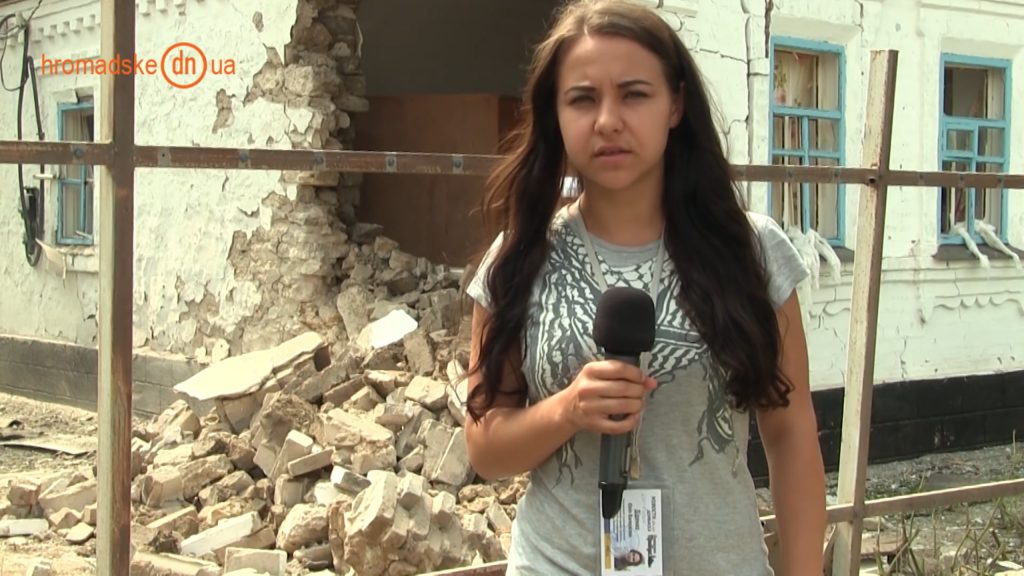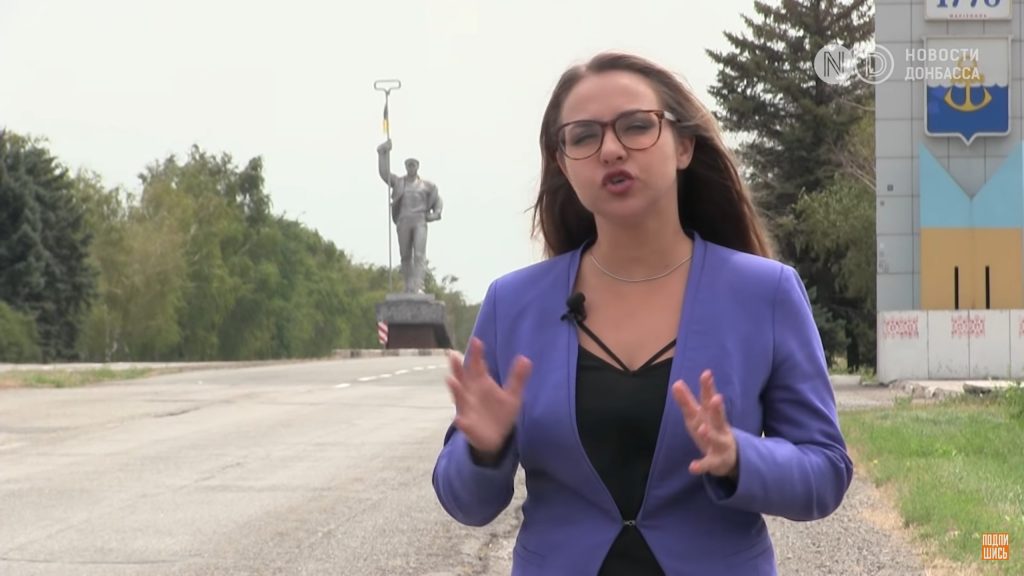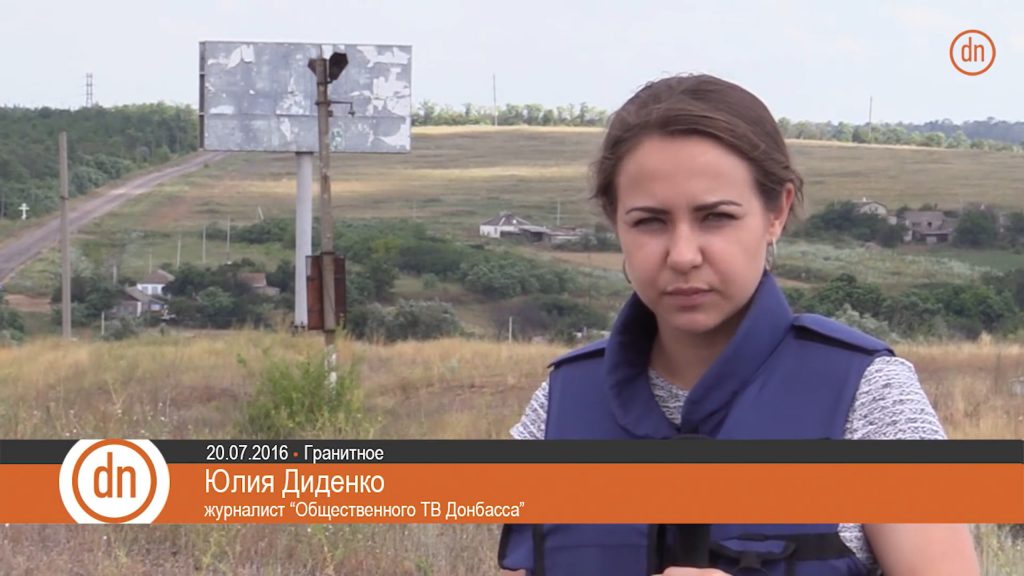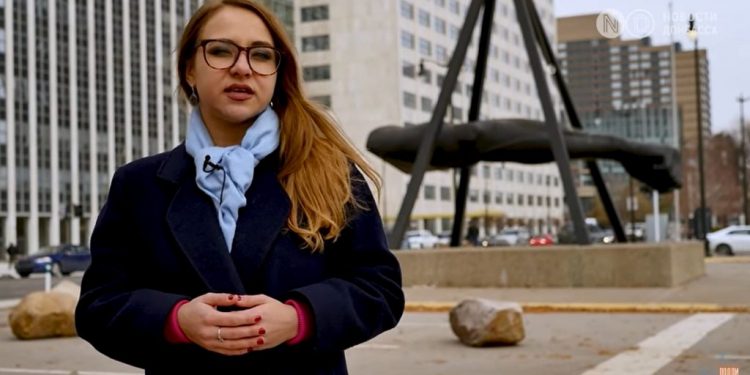For Yuliya Didenko, an editor from Ukraine, Lugansk, Donetsk, and Mariupol held cherished memories. However, due to the full-scale invasion, these names now evoke pain, suffering, and human sacrifices. The chief editor of Donbas News managed to rebuild her life twice after losing her home, but now these places are associated with immense challenges brought by the war.
Yuliya was born and raised in the Lugansk region, but she moved to Donetsk to pursue a career in journalism. Until 2014, she worked happily at Donbas News. However, as spring arrived that year, freedom in Donetsk started diminishing, and with the full occupation, it was completely suppressed.
— Occupiers began coming to our editorial office, and then they started threatening our editor. When unknown individuals set his car on fire, it became clear to everyone that staying was dangerous, — Yuliya explains. — The cameraman and I left as some of the last ones. I had never trembled like that before. On our way to Mariupol, there were numerous checkpoints. If any of them found out I was a Ukrainian journalist… I can’t even imagine. I deleted all the information I had, and that probably saved me.
After relocating to a new city, Yuliya quickly rebuilt her career, made new friends, and started life anew. She enjoyed eight years of happy life on the Azov Sea coast, but she understood that the day would come when Russia would attack Ukraine again.
— I sensed that Putin would wage war against us again, but I thought it would be limited to Donbas. As for Mariupol, honestly, I was sure it wouldn’t survive. But I couldn’t fathom it would be this harsh, — Yuliya shares. She vividly remembers having to flee Donetsk under shelling, and on February 23, along with her colleagues, she headed to Kyiv with all her belongings. At that moment, it seemed that the capital would be safer. Yet, to her surprise, on February 24, her birthday, Yulia woke up not to well-wishes but to rocket explosions in the city.
— To say I was shocked is an understatement. I had no idea Putin would go this far. We were frightened, but we realized that all we could do was inform people. We worked tirelessly, held briefings, searched for useful information, did everything we could, — Yuliya continues her story.

Understanding that battles were taking place on the outskirts of Kyiv and the security situation in the city was unstable, Yuliya and her team left for Lviv at the beginning of March. There, they rented a house that served as both the editorial team’s workspace and living quarters.
— We’re like a real family now. Currently, there are four of us in the video production department, but we realize the need to expand. While before, we only covered the regions of Luhansk, Donetsk, and the occupied territories where we could gather materials, today we also report on Kherson, Kharkiv, and almost the entire front line, — our interviewee explains.
Yuliya confesses that going from home for the second time was physically easier since she already had a plan in place. However, her heart breaks emotionally each time she receives news from Mariupol.

— It’s like an open wound. Just imagine that thousands of human lives fit between the numbers 25,000 and 84,000. Recently, we were preparing a piece about a building on Khmelnytskyi Boulevard in Mariupol – it’s not far from where I lived – on March 13th, thirteen people died there. We tracked down survivors from that building, and they shared that it was hit twice while these people were simply cooking in the courtyard because there was no electricity, water, or gas… And there are thousands of such stories, — Yuliya continues. It will take quite some time for Mariupol residents to overcome this pain. — I’ve heard from my friends: ‘If I ever manage to return to Mariupol, I’ll probably just fall to the ground and scream.’ That’s what my friend said. She lost her grandmother, who endured basement bombardments and ended up in a hospital, but her heart couldn’t withstand it… It’s incredibly tough.
As for Yuliya herself, she believes she’ll be able to return not only to the sea but also to her mother in Luhansk. The main thing is to survive.

— My greatest aspiration is to outlive Putin, to physically witness what unfolds next. We are facing challenging times ahead. On the one hand, I truly believe in our eventual victory, but on the other hand, I recognize that we’ll have to engage in a prolonged struggle. I take pride in our colleagues who are currently working alongside our military on the frontlines. However, I also believe that within our country, there should be individuals who remain vigilant and informed. I’m thankful that such individuals exist, and they are truly remarkable, — Yuliya expresses.
This article highlights the experiences of Yuliya Didenko, an editor from Ukraine, who witnessed the impact of war on once-beloved places like Lugansk, Donetsk, and Mariupol. After enduring displacement and rebuilding her life, Yuliya’s story reflects the profound changes brought by the conflict. She recognized early signs of a broader war, sought to inform people amid the chaos, and continued her journalistic work from a new city. Yuliya’s determination and aspirations underline the resilience of individuals amid challenging times.
This series, titled Executed Free Speech, is created as part of a project Drawing Ukrainian And International Audience’s Attention To Serious Violations Of Human Rights And Crimes Against Journalists And Mass Media By The Russian Federation, which is performed by the National Union of Journalists of Ukraine, with support from the Swedish non-profit organization Civil Rights Defenders.
JOURNALISTS ARE IMPORTANT. Stories of Life and Work in Conditions of War is a cycle of materials prepared by the team of the NUJU with the support of the Swedish human rights organization Civil Rights Defenders.
#CRD

 THE NATIONAL UNION OF
JOURNALISTS OF UKRAINE
THE NATIONAL UNION OF
JOURNALISTS OF UKRAINE
















Discussion about this post